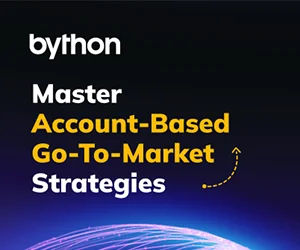FinTech startups have been on the rise for quite some time. But more than their success, we have heard about their shutdowns. Multiple surveys conducted across the globe hint at the falling face of Fintech startups. It is seen that nearly 90% of the startups fail before reaching their end goal or in the first five years. And the same applies to the Fintech domain. In fact, the sudden need to go digital caused a lot more failure in the domain as compared to others.
Now, to think about it, fintech startup failures cannot be eliminated but minimized. Keeping this as the core, this article talks about the steps one must take to reduce the possibility of failures for the fintech startup. Without further ado, let’s dive deep into everything you must know.
( Also Read: 5 Fintech Trends that Will Grow Your Business )
4 Tips to Help Your FinTech Startup Succeed
Fintech is primarily a concept that has gained the attention of entrepreneurs in recent times. While the technology existed even before, it is only after the setback suffered post COVID-19 that people across the globe acknowledged the importance of such platforms. Though we saw tons of new ideas surfing the industry, not all managed to make it to the next level. For some, it was a lack of knowledge, for others, absence of money. In simple terms, the reasons were many but the end result was the same, failure.
Doing some research, we found that even though failure is inevitable, if done with proper planning, fintech startups can effectively scale and emerge successfully. Here, we have outlined four major areas to look upon, when starting a fintech business.
-
Product Differentiation
To begin with, you need to look out for the product. One of the common mistakes that most startups make is to build products that are already present in the market. That is to say, not conducting proper research or an in-depth market study disrupts the entire business cycle.
Before you set out to launch your product or solution in the market, do a proper study of your competitors. What are the different types of products, the corresponding features, the pricing model, and above all, their customer feedback? Once you have had enough information on what exists, the pros and the cons of the same, it becomes easier for you to strategize on your product, identify areas that will help you differentiate your product from the rest. Remember, it is not the product but the solution that comes along that makes a difference.
-
A Sales Model
The second thing that requires your undivided attention is the sales model. Even though you have built a flawless product and it is also something that has the potential to attract the target audience, an inefficient sales process might bring downfall. As for fintech startups, reaching out to potential customers needs significant strategies and a dedicated approach towards its execution.
As a matter of fact, you need to work on multiple areas to get everything on track. Starting with the message to the platform to communicate the same, the features to be capitalized and the offers to be passed on to the end customers, everything must be organized. Hence, the need for a robust yet flexible sales model.
-
A 1-Year Capital Plan
Cost is another factor that causes the failure of startups, let alone the fintech industry. With all of the planning and preparations in place, you also need to set out time to prepare the capital plan for at least a year. True that there are multiple ways to secure funds. You can have VCs invest in your idea, or say investors take a share of your firm in exchange for monetary support. But that’s all on your funding plans.
Long before you go live in the market, it is a must to have enough money to survive in the industry for a year. This is where the one-year capital plan comes into play. In simple terms, this suggests identifying all of the expenditures that you expect in the coming year. From the contingency cost to employee salary, you need to have enough to last a year. This will give you ample time to focus on other areas.
-
Regulation and Compliance
When it comes to the fintech industry, things are pretty sensitive. The fact that you are dealing with a lot of customer data and that to important ones, you need to be 100% sure of how you are storing the information and whether or not it is protected.
Right from legal restrictions to ethical laws, you would never want yourself to lose your business over such matters. To be on the safer side, long before you start the business, hire a legal expert and work on everything, ensuring that you are legally protected. Initially, all of this sounds unimportant but there have been instances where companies had to lose everything in the name of regulatory laws and corresponding compliances. Hence, it is better to be safe than sorry.
Final Thought
Losing or winning is just a matter of time. When you start a new business, you need to work on multiple areas before going live, and seeing all your effort go in vain is heart-crushing. While you cannot ensure that your startup won’t fail, you can definitely take measures to limit the possibility of the same. The areas mentioned above will help you make better decisions and succeed in your venture.
Every startup needs to undergo the process and to be honest, it is all about finding the right balance between creating a product from scratch and being able to market it on a large scale.








